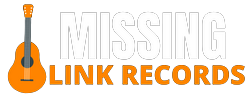Music Therapy: A Clinically Proven Effective Therapeutic Method
“According to a study by the National Center for Complementary and Integrative Health, music-based interventions, such as music therapy help to relieve pain, anxiety, depression, stress, and several health conditions, including Autism Spectrum Disorders (ASD), Cognitive Impairment and Dementia, and Chronic Obstructive Pulmonary Disorders (COPD).”
Music therapy gaining traction worldwide, as it has been medically proven as an impactful way to improve an individual’s health aspects. As per the American Association for Music Therapy, the demand for music therapy in the US has doubled in the last 5 years. Moreover, the therapy served an essential purpose during the COVID-19 pandemic for clients, family members, and healthcare providers to relieve stress.
Music therapy act as a powerful alternative to other types of therapy, such as cognitive behavioral therapy or counseling. The practices in music therapy include singing, listening to music, playing different musical instruments, and music composition. According to a study, music therapists worldwide have been serving more than 1.6 million people yearly.
What is the Current Scenario of Music Therapy?
Currently, music therapy is widely used to treat individuals with addiction, anxiety, depression, and several mental conditions. There is no such standardized process used by music therapists who all are working with individuals. This therapy is delivered inpatient or outpatient depending on the individual program. However, insufficient reimbursement from payers, lack of insurance coverage, and limited availability of clinically qualified therapists are limiting music therapy.
Adoption of this therapy for substance abuse recovery promotes connection to self and builds motivation to change while learning to navigate life in sobriety. Therefore, it is widely used in rehab centers to help individuals who are having difficulty coping with the demands of recovery from substance use disorders. It is also used in hospitals to alleviate anxiety among patients during surgery.
“As per SkyQuest, one-third of music therapists are operating their own businesses. Whereas, one in five works as a consultant or an employee in a recognized organization.”
“According to a research study, currently, there are more than 26,000 music therapists in the US. Nearly 49% of music therapists working in the healthcare industry and about 16% of them work in the education industry.”
What is the Future?
Music therapy is considered to be a fast-growing profession globally. A rapid increase in the demand and interest of individuals in it, due to the growing awareness regarding the therapeutic advantages of music. According to the Bureau of Labor Statistics (BLS), there is a 17% increase in job openings for music therapists, which is expecting even more growth in the next few years.
Technologies are pushing the boundaries in every field. Therefore, the field of music therapy is merging worldwide with the help of innovative technology coupled with the rise in the trend of digitization. It helps therapists to deliver cost-effective sessions through online mode.
As per a recent study, about 85.7% of music therapists used technology in their practice. While rest of the participants said that they don’t use technology in their practice, but they think that technology can help them conduct sessions. Moreover, more than half of the participants believe that specialized software will be beneficial for their practice in the future.
Major Developments in the Field of Music Therapy Technology:
- On February 16, 2022, Spoke launched a music therapy app for people under the age of 25. This app is designed by conducting research over 18 months with the help of modern musical artists and scientific advisors. The app employs artists that are trained by therapists, psychologists, and neuroscientists to produce music to help users in achieving a desired mental state.
Summing Up:
Music therapy is a clinical approach and has been medically proven to be an effective therapeutic approach. It is used to aid the individual’s health issues, including stress, anxiety, depression, substance abuse, and other mental health issues. Various reports have shown a positive response to music therapy treatment and claim that music exposure enhances human cognitive performance.




